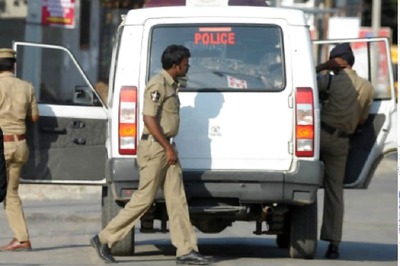
views
New Delhi: After a Jodhpur court sentenced Bollywood superstar to five years in jail in the 1998 blackbuck poaching case, a group of young men gathered outside the court raised celebratory slogans and distributed sweets.
These were men from Rajasthan’s Bishnoi community, a powerful sect of Vishnu-worshippers who are known for their reverence for nature. It was members of the Bishnoi community who had seen Khan shoot the endangered animal in 1998 and bore witness against him. But the Bishnois’ love of nature goes beyond just wildlife. For them, trees, too, are sacred.
The community’s tryst with environmental activism began nearly 300 years ago, with a woman called Amrita Devi Bishnoi in 1730. It was with Amrita Devi that the first ever ‘Chipko movement’ is said to have begun. The story took place in a village called Khejarli, which derives its name from the Khejri tree, in present-day Jodhpur district. The Khejri is one of the few types of flora that can survive in the arid, dessert conditions of the Thar and hence, is seen as precious and sacred by the Bishnois.
When in 1730, the Maharaja of Marwar sent his men to cut down Khejri trees in the village, Amrita Devi stood between them and a tree. She told the men that she could not allow them to fell the trees, since it was prohibited in her religion.
When they asked her to pay a bribe to save the trees, she refused, offering her life instead. Legend has it that she said, "Sar santey rukh rahe to bhi sasto jan" (If a tree is saved even at the cost of one's head, it's worth it) before sacrificing her life. When the king heard of the massacre, he ordered his men to stop the mission and return.
The news of her martyrdom spread like wildfire and Bishnoi men and women from 83 neighbouring villages are said to have thronged the village to save the trees.
As the king’s men began cutting down the trees, 363 Bishnois sacrificed their lives by clinging to the trees. To this day, Amrita Devi and the 363 Bishnois are regarded as heroes in the community.
The origins of Bishnois date back to the late 15th Century, when a preacher called Guru Jambeshwar established the sect. While some believe the term ‘Bishnoi’ is a derivative of Vishnu, the principal deity of the Bishnois, others believe it means twenty (Bish) nine (noi) in a local Rajasthani dialect. This alludes to a list of 29 commandments laid down by Jambeshwar, which all Bishnois are required to follow.
Of these 29 principles, eight have to do with preserving biodiversity and animal husbandry. For example, the 19th commandment of the Bishnois reads, “Do not cut green trees, save the environment.”
The 22nd commandment, which relates to protecting animals, is what drove the Bishnois to push for Salman Khan’s arrest and conviction in the Chinkara and blackbuck case. “Provide shelters for abandoned animals to avoid them from being slaughtered in abattoirs,” it reads, making clear the Bishnoi’s reverence of all life on the planet.
Other commandments that encourage Bishnois to preserve nature are the 23rd (Do not sterilise bull), 28th (Do not eat meat, always remain pure vegetarian) and 29th (Don’t use violet blue colour extracted from the indigo plant).
It was because of their adherence to their principles that outfits such as Akhil Bharatiya Bishnoi Mahasabha and Bishnoi Tiger Force shed light on Salman Khan’s alleged trespasses and continued to agitate against the superstar.




















Comments
0 comment